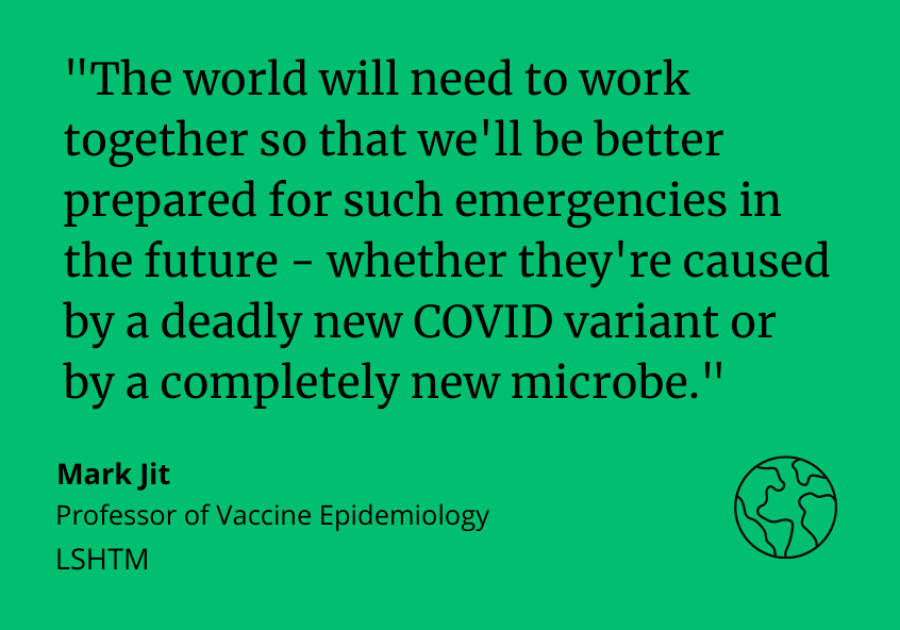Expert comment – WHO declares that COVID-19 is no longer a global health emergency
9 May 2023 London School of Hygiene & Tropical Medicine London School of Hygiene & Tropical Medicine https://lshtm.ac.uk/themes/custom/lshtm/images/lshtm-logo-black.png
The World Health Organization (WHO) has officially declared that COVID-19 is no longer a public health emergency of international concern.
Speaking at the 15th meeting of the Emergency Committee last Friday (5th May), WHO Director-General Dr Tedros Adhanom Ghebreyesus emphasised that although the announcement comes with ‘great hope’, the global health threat caused by the disease is not over.
In the three years since the outbreak of COVID-19, the disease has reshaped our world, resulting in seven million recorded deaths which the WHO estimates could be closer to 20 million, and causing widespread social and economic upheaval.
However, population immunity from vaccination and infection, declining death rates and easing pressures on healthcare systems have helped contribute to a downward trend in the pandemic over the past year.
According to Dr Tedros, whilst now is not the time to become complacent, what with the risk of variants, millions who are living with post-COVID-19 complications and the disease still claiming a life every three minutes, we must concentrate on managing COVID-19 alongside other infectious diseases.
Mark Jit, Professor of Vaccine Epidemiology at LSHTM, comments: “We’ve come a long way since the dark days of 2020, in reducing the threat that COVID is to our lives, our livelihood, and our way of life. This is thanks to infections being less severe nowadays because of the immunity we’ve build up from vaccination, and sadly, also from most people having been infected by many different variants of the virus already. So WHO is right to declare that the emergency phase of COVID is over.
“But COVID is still with us, and will continue to infect people for many years to come. So we’ll need to invest in our healthcare systems to cope with all the extra people needing care every year. We’ll need to ensure that people get their booster doses if the virus continues to mutate. And above all, the world will need to work together so that we’ll be better prepared for such emergencies in the future – whether they are caused by a deadly new variant of the COVID virus, or by a completely new microbe we’ve never seen before.”
David Heymann, Professor of Infectious Disease Epidemiology at LSHTM, said: “SARS-CoV-2 is now being treated by many countries as an endemic infection that is being kept at bay by population immunity that has developed from natural infection and/or vaccination. Control measures have been put in place to alert changes in the virus, including genomic surveillance often linked to Influenza-Like Illness surveillance for influenza, and strong vaccination programmes with precautionary booster vaccination of high-risk groups that are in place in countries where the pandemic has caused increased serious illness and death. Hospital admissions and deaths from COVID-19 are being monitored for any changes that indicate further investigation is required, and vaccine manufacturers are ready to modify vaccines should there be a need.
“If standing recommendations are to be added to the International Health Regulations it would seem they could be aimed at highly transmissible respiratory infections in general as preparedness for a future epidemic or pandemic of respiratory disease, and that excerpts from the excellent WHO guidelines for highly transmissible respiratory infections (including COVID-19) would be more useful as standing recommendations than specific guidelines for COVID-19. There might also be consideration about more equitable distribution of vaccine, therapeutics and diagnostics, but this may be covered in an eventual treaty.”
LSHTM's short courses provide opportunities to study specialised topics across a broad range of public and global health fields. From AMR to vaccines, travel medicine to clinical trials, and modelling to malaria, refresh your skills and join one of our short courses today.